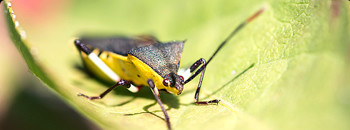
RISE (Responsible Industry for a Sound Environment)® supports the White House’s Presidential Memorandum on creating a national strategy to promote pollinator health, protect and restore pollinator habitats, and conduct comprehensive research to better understand pollinator population decline. The conversation around pollinators has been heightened in recent years – and again made a focus today.
To do its part, RISE created the ‘Bee Responsible’ program to bring greater awareness to the many factors affecting bee health and how we can all work together to promote their long-term existence.
“RISE is working to drive greater awareness and promoting long-term bee health among industry leaders, government officials, and the people who use and rely on pest control products every day,” said Aaron Hobbs, president of RISE (Responsible Industry for a Sound Environment)®.
During National Pollinator Week (June 16-22), RISE is highlighting the important roles each of us plays in creating a healthy environment for bees and offers the following tips to creating pollinator-friendly practices:
- Welcoming pollinators to your backyard by choosing pollinator-friendly plants. Bees prefer blue, yellow, or bright white flowers that have a large landing surface and shallow shape.[i]
- Planting a variety of flowers that bloom throughout the growing season to provide continual pollinating opportunities.
- Growing native flowers and plants will adapt better to where you live and provide a familiar food source to local pollinators.
- Bee-ing” responsible by always reading and following all label instructions when using any pesticide products. Make sure to choose the right product for your problem, and apply it correctly.
- Downloading and using a pollinator-friendly planting guide app from your smartphone or mobile device.
Moving ahead, RISE looks forward to building on the discussions previously held with White House officials and working together to find positive solutions to issues facing our pollinators and the environment in which they live.
To learn more about the many factors affecting bee health and how we can work together to support their long-term health, visit www.debugthemyths.com/BeeResponsible. Join the conversation on Facebook and Twitter with hashtag #BeeResponsible.
[i] http://www.pollinator.org/PDFs/Guides/PacificLowlandrx9FINAL.pdf

